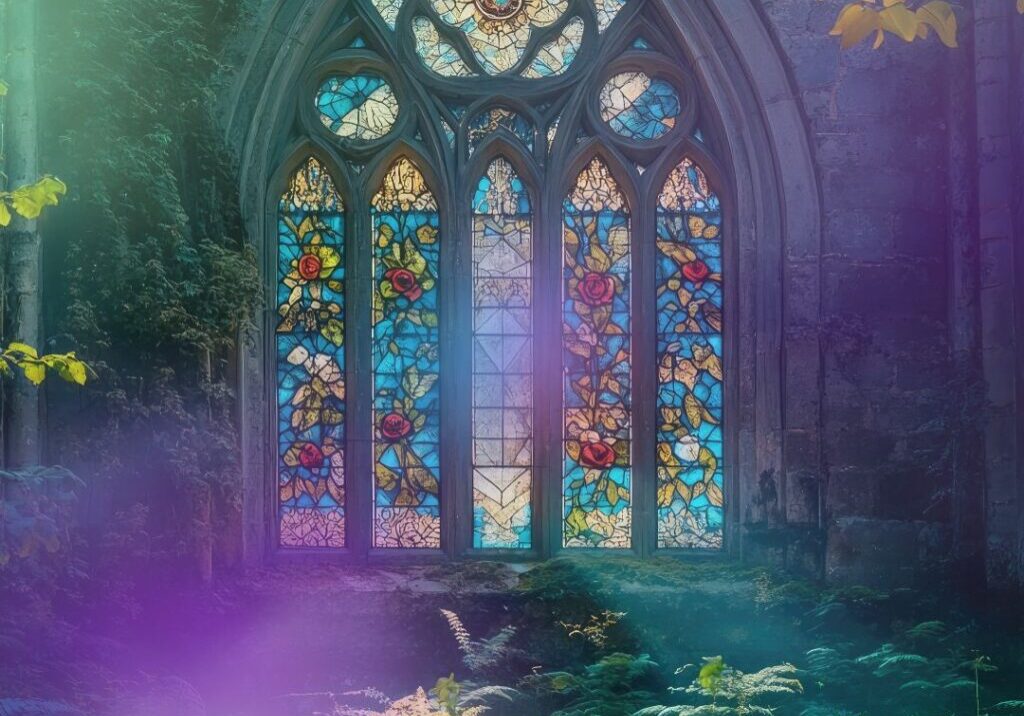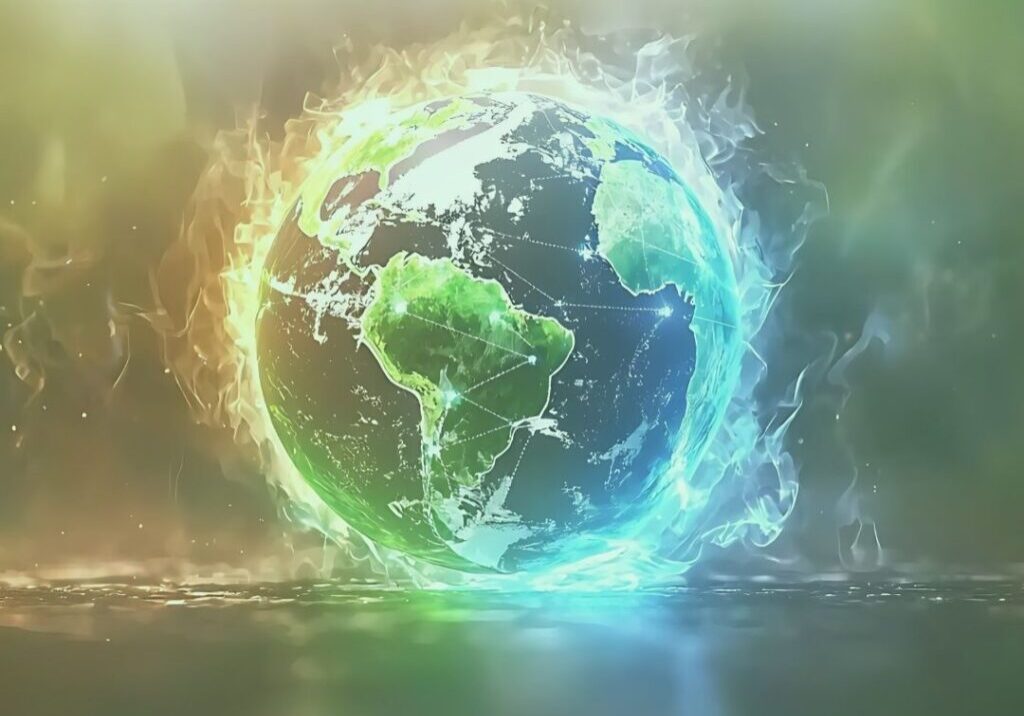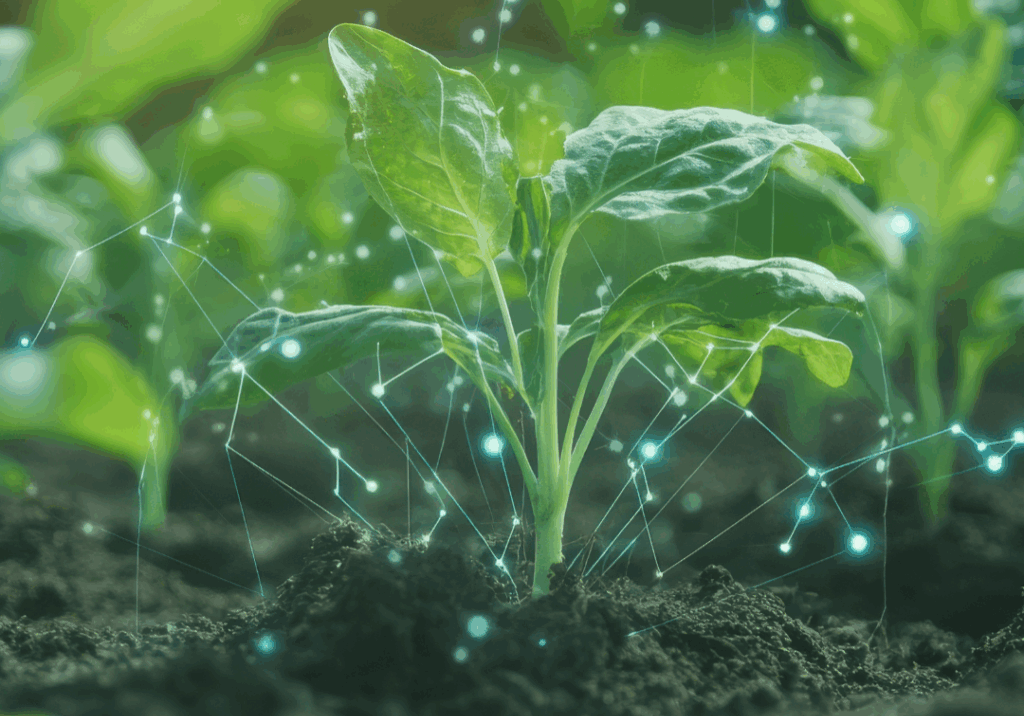August Reflection: Pursuing Truth in an Evolving Universe
By Jillian Langford
Earlier this month Ilia Delio and I grabbed lunch to discuss all things Center for Christogenesis. At lunch we dreamed of the far-reaching impact of the C4C and how we can get there, together.
Although our lunch primarily focused on the mission and vision of the C4C, Ilia and I took a moment to reflect on how our relationship began. Not so long ago I was a bright-eyed graduate student in her introduction to theology class. She was one of my professors in my first year of graduate school at Villanova University. Although she was just teaching an introductory class, I had a dense theological background and I came to school with firm intentions of studying Thomas Aquinas and his theology. I had never heard of Teilhard de Chardin and I thought that I had no interest in the process theology Ilia was teaching. I wanted to know the “truth” and I was convinced that was only to be found in my extensive study of Aquinas and church history. “Truth,” after all, was something static and finding it was like climbing a mountain – I’d go up and up and up, and someday I would reach the summit. My search would be over and then I could go and take that static, unmoving truth to others. Truth was like a giant encyclopedia. Once I had it, the search was over. Boy, was I in for a surprise when I walked into Ilia’s class.
During those first weeks of class, I was simultaneously baffled and excited about the new type of theology Ilia was introducing me to. Without dismissing my preconceived notions about “truth” or making me feel like I was incorrect, Ilia challenged my views with scientific evidence, scripture, and ideas about God that allowed me to understand divinity in a way that only expanded my ideas about who and what God could be in a universe in evolution. My faith only deepened and my love for theology became more deeply instilled.
Over our lunch earlier this month, Ilia mentioned that she remembered me sitting in the front of the class, wide-eyed, with questions that certainly reflected my commitment to theology and “truth,” but also an openness to growth. While we laughed about how far along I had come from being committed to a very static notion of theology to embracing an idea of God that is constantly changing, I pondered exactly how I’d been able to come so far in my new ideas about God and reality.
In her book, Making All Things New, Ilia Delio writes about “truth in evolution.” She highlights that the knowing process “furthers evolution by uniting fragments of data or experience, creating new unities” and that “truth cannot be isolated or absolute but must be in dialogue with our experience in and of the world… Truth is always a search and a discovery.”[1] When I met Ilia I was convinced that I was on the track to the fullness of truth simply through my previous abstract studies in theology. However, my desire to study and my openness to knowledge, along with my mentorship with Ilia, allowed me to realize that my ideas could be deepened through my interactions with the world. My life itself is an opportunity to further evolution, and commit to the creation of new unities.
Moving forward in an unfinished universe requires a radical openness in ourselves and in the systems in which we participate. I encourage all of us to take some time this month to think about which “truths” we hold in isolation or truths that we think are absolute, and to open ourselves up to the search and discovery of newness. Take a moment to read a new thinker, peruse an article on our website, or submit a question to learn something more. Together we can participate in the co-creation of this unfinished reality.
Reference Notes:
[1] Making All Things New, 146-147
 View print-friendly version
View print-friendly version
4 Comments
Related Posts

Is Christianity in Crisis or Transition?
We are facing an unprecedented convergence of crises: global warming, climate change, mass migration, and systemic ecological collapse. Our planetary systems are exhausted and no longer able to sustain human…


I agree with Panikkar that we are a cosmotheandric trinity in God, but the Will from which we originate needs no change. We are the growth and expansion of God, but that does not mean the Will was not complete before the Big Bang. We cannot comprehend a reality that is both “fixed” and also expanding and that incomprehension is our hopeful joy in which we proceed. It is not necessary to know, but to enjoy the experience.
Jillian, you have been such a powerful and grace-filled addition to C4C. Your article is so perfectly written and integrates the heart and spirit of what I have learned from following Ilia and C4C. I’ve listened to the first three episodes of Hunger for Wholeness. They are excellent and your leadership and input there is part of the excellence. We need millions more young people like you who desire to “participate in the co-creation of this unfinished reality.” Keep up the great work and please continue to stretch our minds and hearts.
You mention a ‘radical openness’– I agree. This means not putting people who think differently into neatly labeled boxes. I find a dangerous tendency on the part of us elite (poor, but richly educated 😉 to express a certain smugness in our own correct ways of interpreting, of living. The starting place from this moment toward the Omega is to live out of the knowledge of our forgiven state–forgiving the hardest-to-forgive and not judging for example, the right wing, or left-wing, the anti-Covid vaccine people, the fearful people everywhere. Seeing the Holy in them– connecting through Great Love. This is living out of Connection-Complexity-Consciousness in the Body of Christ. This is our source of joy in the co-creation project.
Hard to buy the notion that divinity, while dynamic, is not fixed. Eternal things and divinity in them couldn’t otherwise shape the created order, or conform and reconcile human souls to itself. Say, the way a potter conforms pliable clay on a potter’s wheel to the likeness s-he desires, and from a relativity fixed position. Humans, on the other hand, in keeping with developmental thrusts as creatures in the field of time, are in the process of continual change, if only by aging. To say the eternal is subject to flux puts one’s biblical scholarship in question, which everywhere declares divinity does not change. I’ll stick with the time-tested doctrine of divine immutability. People alter the revealed Word of God all the time, trying to re-make the divine image and character as they so choose. In Ilia’s class you neither changed her, her ideas, or her fixed syllabus, it changed you. Ditto any Master teacher, and/or the inspired Word of God (2 Tim. 3:16). We may choose not to like a fine painting in the Metropolitan Museum. Nonetheless, the painting stands in judgment of us, not the reverse, regardless of our tastes and preferences. Ditto the Word of God, whose inspired authors, like Christ, carried out their truth-telling assignments with little regard for how others felt about it. They would not have died for same, if not absolutely convinced of its veracity (when written). Now, the person of Jesus was the last and latest (updated) version of the divine revealed, in a manner that corrected mis-applications of his Father’s Word and will prior, along with being his Father’s consummating incarnation in the Church Age.